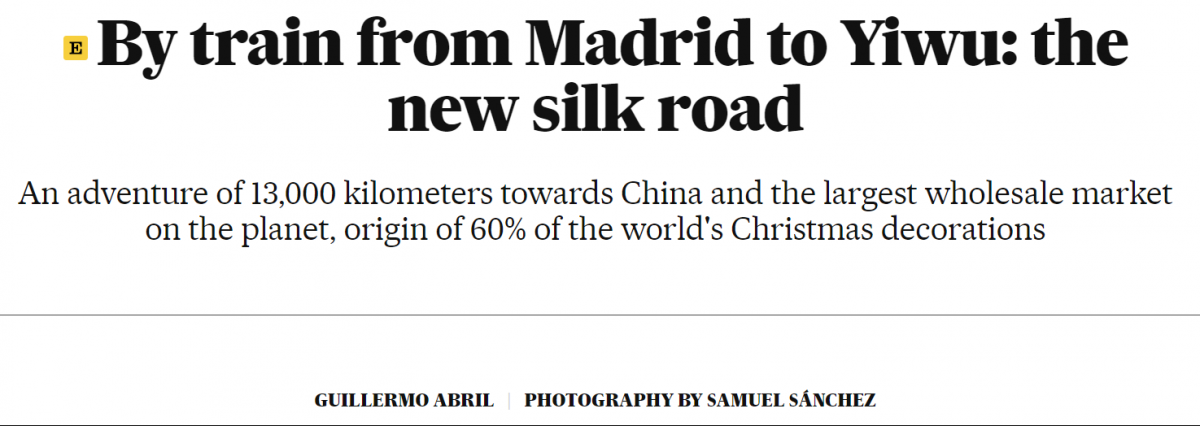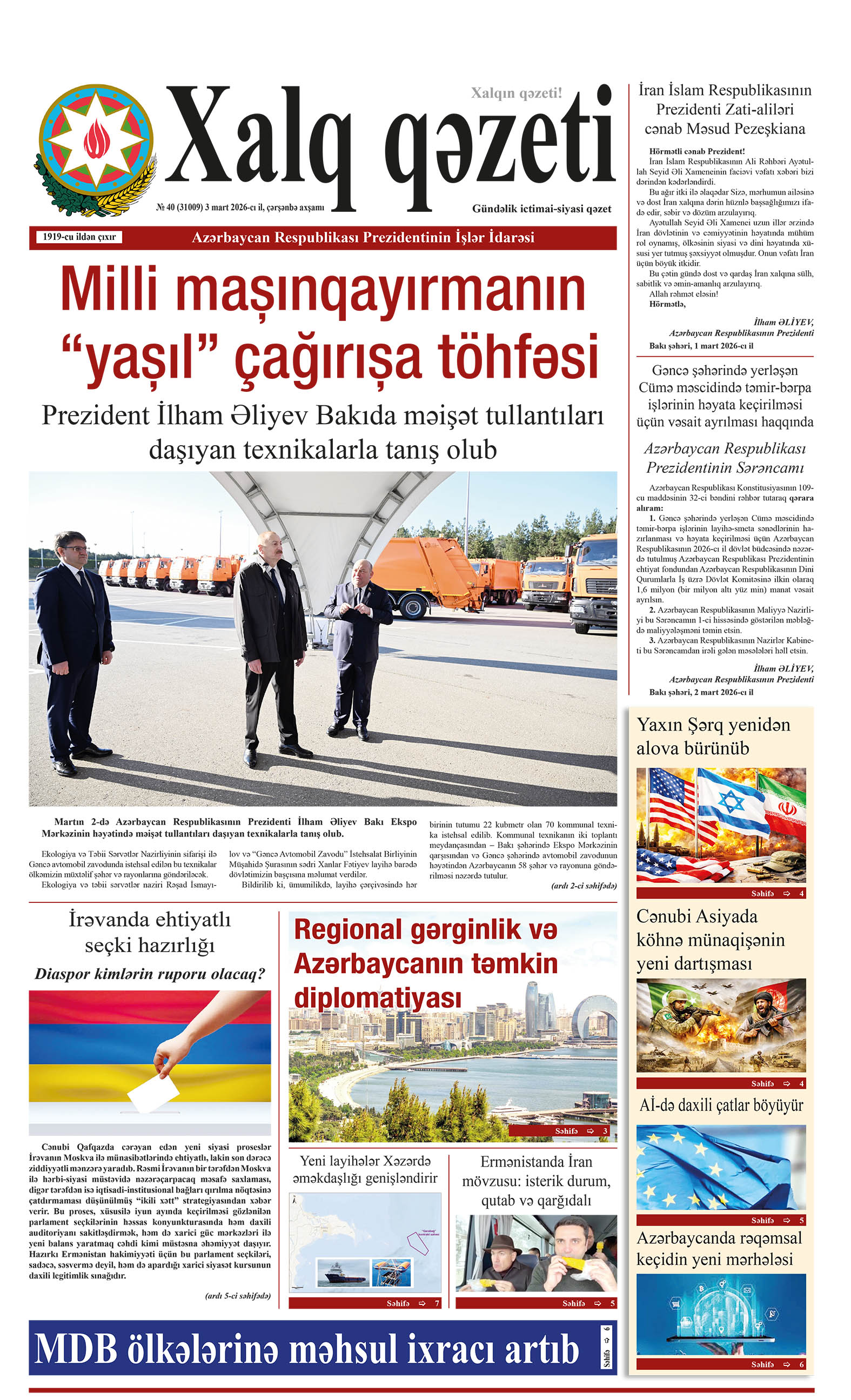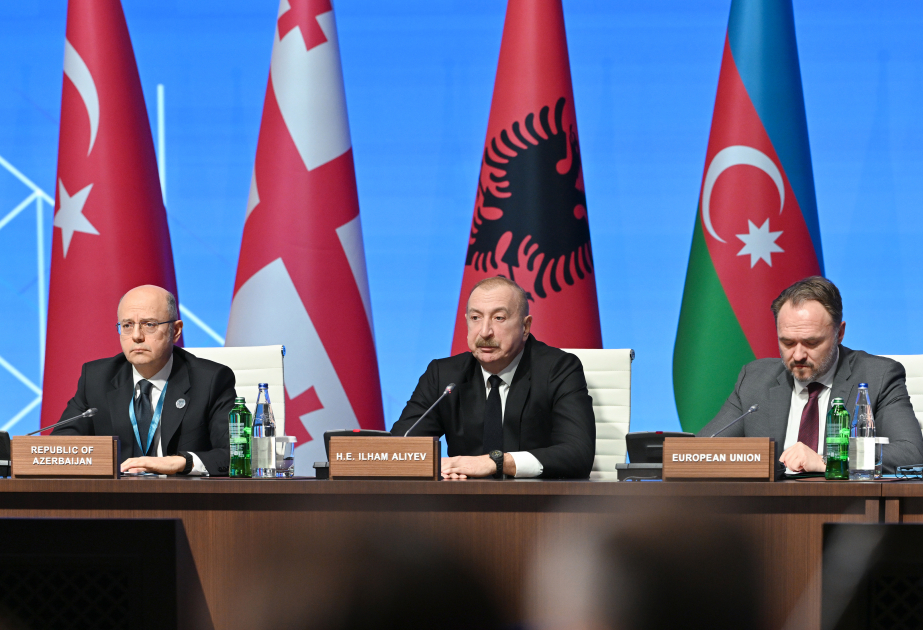Spanish newspaper EL Pais publishes article headlined “By Train from Madrid to Yiwu: The New Silk Road”
A Spanish newspaper EL Pais has published an article headlined “By Train from Madrid to Yiwu: The New Silk Road”. The EU and China are two of the biggest traders in the world. Today Azerbaijan is becoming a transit hub on China’s new Silk Road. Azerbaijan started by tapping its rich natural resources underground. Now it is latching on to its most valuable above-ground asset: geographical location.
Guivami Rahimli, PhD, Senior Government Affairs Advisor for bp AGT Region, who hosted El Pais correspondent Guillermo Abril at the Sangachal terminal, has shared with AZERTAC the part of the article related to Azerbaijan released by this international media outlet.
By train from Madrid to Yiwu, one of China's great manufacturing centers, in the reverse direction of the world's longest freight line: 13,052 kilometers, which carries the Asian giant's products to Spain, crossing Kazakhstan, Azerbaijan, Russia, Belarus, Poland, Germany, Belgium and France. Along the way, witnesses to China's commercial drive along the Belt and Road - the official name of the route - speak of Chinese expansion.
… An adventure that started in 2021 with the end of the state of alarm over covid and ended two years later with the lifting of restrictions on entry to China. A geographical journey, but also one of ideas and values to better understand the new world we live in.
… At the Russian border: arrival at the border with Azerbaijan; cumbersome episode to cross it. Visas are in order, but the presence of two journalists alarms Russian officials. Moments of tension with an FSB agent, the security service. A laissez-passer from the Azerbaijan Foreign Ministry opens the gates of the small former Soviet republic.
"Can you smell it?" the engineer asked as he advanced between pipes. A thick air was perceptible. He replied, "It's the smell of money." Through those pipes flowed Azerbaijan's great source of wealth at a rate of some 650,000 barrels a day. Those effluents emanated from Sangachal, Azerbaijan's largest industrial complex for processing hydrocarbons. Located on the shores of the Caspian Sea, from whose subsoil gas and crude oil were extracted, a pipeline that transported the black gold through Georgia and Türkiye along 1,700 kilometers to the Mediterranean started there; Sangachal was also the birthplace of the Southern Gas Corridor, which in 2020 began to send gas to the European Union along a similar route.
Azerbaijan calls itself "the land of fire". Here oil has been flowing from the earth since time immemorial. Marco Polo, who passed nearby on his way to China, left a record of a village of the Fire Worshippers, where they worshipped the eternal flames of a well. Today the same god is worshipped: in Baku, renovated thanks to millions of dollar investments in hydrocarbons, three skyscrapers known as the Flame Towers shine at night.
"These pipelines contribute to the diversity of global supply," Guivami Rahimli, government affairs advisor for BP, the company that operates the terminal, said in Sangachal.
They pump resources from outside the "Persian Gulf and Russia," he stressed. "That's why it's so important for the energy security of many countries." From there they flowed to the West and these ties would soon be key: when Putin ordered the invasion of Ukraine, Brussels cut off the energy flow with Moscow and had to look for alternatives. European Commission President Ursula von der Leyen would land in Baku with a message: "The EU has decided to move away from Russia and turn to more reliable and trustworthy partners." She announced more investments.
That November a war was still raging in this territory, the control of which Azerbaijan disputes with Armenia. The Foreign Ministry organized a tour of "recently liberated territories". In Aghdam, which the Azerbaijanis called the "Hiroshima of the Caucasus," the government wanted to create a kind of full-scale museum about the conflict, dedicated to Armenian atrocities and their country's victory. It was impossible to forget that history was being written there by the victors: "We did not start the conflict, we are for peace and welcome Armenians who want to return to Azerbaijan".
During a lunch organized by the Foreign Ministry, enigmatic gentlemen introduced themselves as representatives of the state-owned company dedicated to the arms industry. It is not out of the question that they mistook us for buyers. Towards desserts, they started talking about their "kamikaze drones". "They are so fast that when you see them flying over your head you must understand that you are already dead," said one. They also manufactured all kinds of weapons. "Now we will visit the factory. You will see our machine guns and pistols; made to Russian standards, but there are also the NATO type."
In the factory there were metallic buzzing sounds. There were dozens of booths inside where parts were being cut, polished and assembled, and, as you went along, the machine guns took shape until you reached the end, where it smelled of paint and various models were on display. "This is a modern version of the Kalashnikov," they said.
In another hangar, similar to a model aircraft workshop, the kamikaze drone was on display. Its smooth lines did not match its deadly capability. It was being manufactured with the help of Türkiye, an ally against Armenia. At the door of the workshop, a screen played a carousel of real battlefield videos. One of them showed how a group of people, having noticed the attack, tried to flee. They were unsuccessful. Their bodies jumped out, torn to pieces.
In Azerbaijan, one could also smell the air of the new, more bellicose times: 2022 would become the year with the most deaths in conflict in the 21st century, with almost 240,000 victims.
In terms of goods, Azerbaijan was another of the nodes on which Beijing had set its sights to extend its connections. As far as Baku in 2015, one of the railroads of the new Silk Road reached it. To reach Azerbaijan, containers had to cross the Caspian Sea on ferries from Kazakhstan. This country was our next stop.















